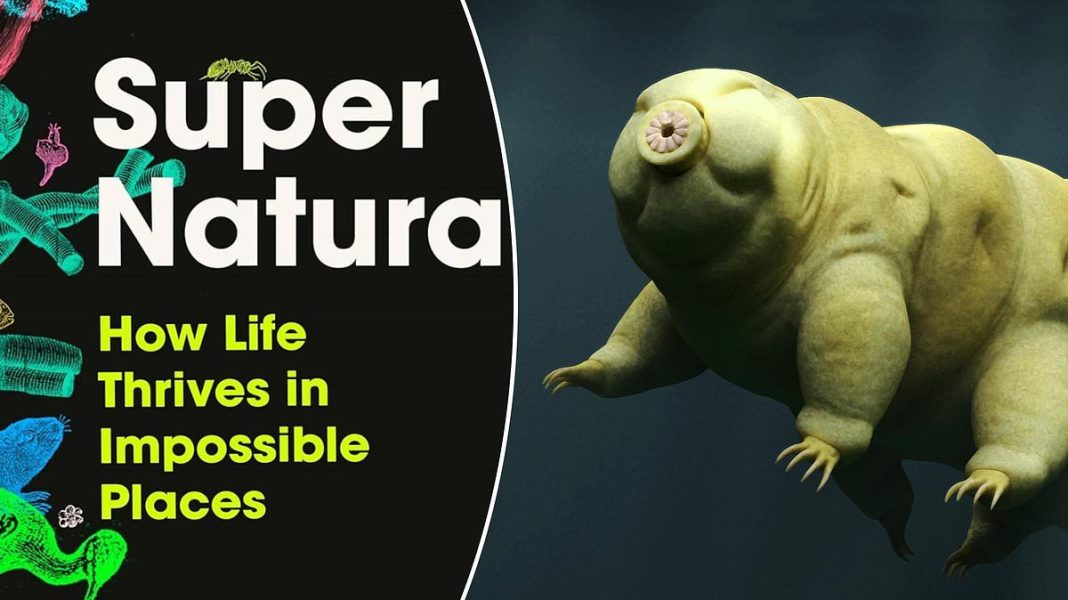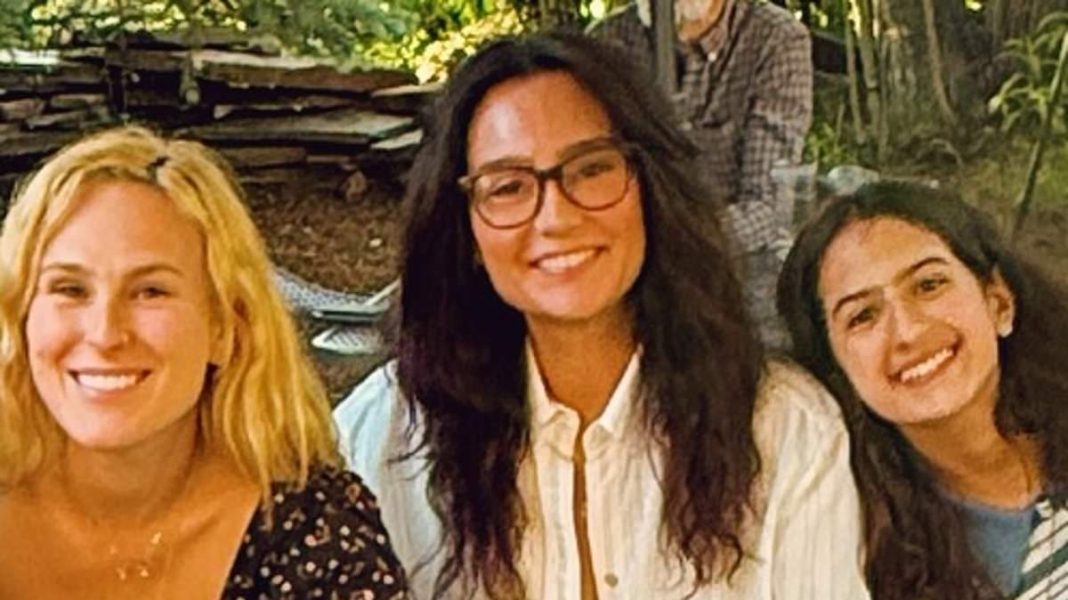Super Natural: how life thrives in impossible places by Alex Riley (Atlantic Books £22, 368pp)
A tiny animal called a tardigrade was first identified in 1861, and described as ‘a little puppy-shaped animal very busy pawing about . . . a very comical amusing fellow’. They’ve also been called ‘water bears’ and ‘moss piglets’.
What’s truly staggering, says Alex Riley in this brilliant new book, is ‘that such a squishy and microscopically cuddly animal would turn out to be so extraordinarily tough’.
They can live at 6,000 metres above sea level, survive in boiling water for half an hour. They can endure pressures of 1,000 atmospheres and radiation 1,000 times the lethal dose for humans. Oh, and they’re fine about being fired into space, and surviving space vacuum and solar and galactic radiation with aplomb.
Their secret appears to be an ability to dehydrate, yet remain alive. In this state they don’t even age.
Tardigrades are a key reason scientists think that total sterilisation of the Earth would be impossible. ‘Once life begins on a planet,’ said a team from Oxford and Harvard, ‘it is likely to endure.’
There are fish that live at 2c below freezing, fungi that flourish inside the Chernobyl reactor, and turtles that don’t need to take a breath for six months.
Riley is good at sketching the geeks at the forefront of the research. One, supposedly an expert on mammalian hibernation, now cheerfully admits, after years of close study, that ‘they’ve confused the living crap out of me’. It’s as if the more we learn about nature, the more we don’t understand.
Surviving on very little oxygen, bar-headed geese migrate over the Himalayas, flying at an impossible 8,000 metres, thanks to some brilliant adaptations in their blood cells and lungs. There’s the possibility that the geese have been flying this route for over 50 million years, since before the Himalayas were there.
Another lesson from nature is that destruction is also creation. Two billion years ago, photosynthetic bacteria nearly exterminated life on Earth when they began to belch out oxygen, a gas hitherto very rare in our atmosphere. Yet after a huge die-off, new life forms emerged to exploit this resource.
Some 440 million years ago, trees quickly colonised the ancient supercontinent of Pangaea, and sucked up mega-tonnes of CO2 in the process, thus abruptly ‘turning a greenhouse world into an ice world’. Some 85 per cent of all species became extinct.
Today, the disaster of Chernobyl has a sobering lesson, too. Nature flourishes and multiplies here because the humans have left. Nature doesn’t really mind radiation; what it can’t cope with is people.
James Lovelock, of the Gaia theory, suggested that the best way to protect the tropical rainforests would be to dump radioactive waste there, ‘to exclude humans’.
Riley takes comfort in the resilience of nature. While he’s dismayed by erratic climate change and collapsing biodiversity, none of these can really threaten life on Earth, though they may well threaten us. The tardigrades will keep going, evolving into new and unimaginable forms of life.






